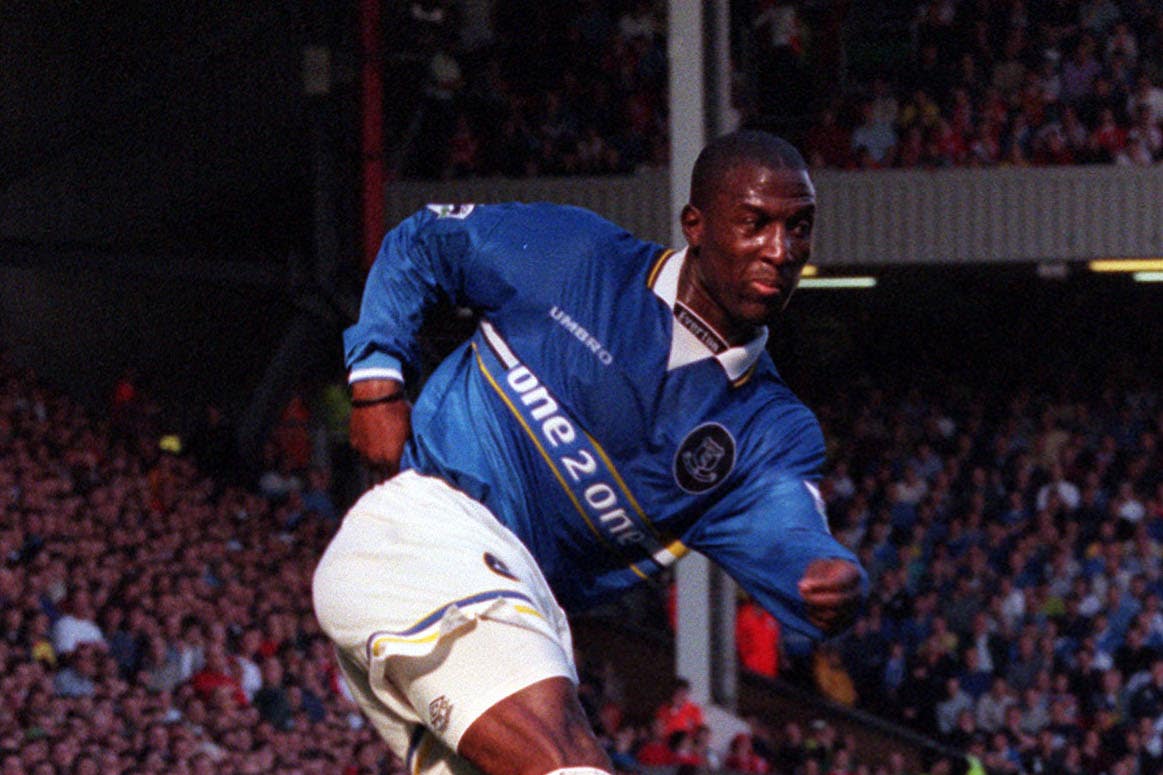Ex-footballer Kevin Campbell’s death investigated by hospital over delays in care, inquest told
Manchester University NHS FT has launched a serious incident investigation into former Arsenal star’s death
Your support helps us to tell the story
From reproductive rights to climate change to Big Tech, The Independent is on the ground when the story is developing. Whether it's investigating the financials of Elon Musk's pro-Trump PAC or producing our latest documentary, 'The A Word', which shines a light on the American women fighting for reproductive rights, we know how important it is to parse out the facts from the messaging.
At such a critical moment in US history, we need reporters on the ground. Your donation allows us to keep sending journalists to speak to both sides of the story.
The Independent is trusted by Americans across the entire political spectrum. And unlike many other quality news outlets, we choose not to lock Americans out of our reporting and analysis with paywalls. We believe quality journalism should be available to everyone, paid for by those who can afford it.
Your support makes all the difference.The hospital where Arsenal and Everton footballer Kevin Campbell died is investigating concerns over delays in his care before his death, an inquest has heard.
Mr Campbell died at the age of 54 at Manchester Royal Infirmary (MRI) on June 15 after he was admitted there a month earlier.
Opening an inquest on Thursday into his death, Zak Golombek, area coroner for Manchester, said Manchester University NHS Foundation Trust, which manages the hospital, had declared a “Level 5 patient safety incident” – the most serious category – about aspects of his care.
Mr Golombek said the provisional cause of death given for Mr Campbell was multi-organ failure due to a heart infection.
No family members were present at Manchester Coroner’s Court as Mr Golombek outlined background details.
Mr Golombek said: “In terms of the circumstances of his death he had been admitted to Manchester Royal Infirmary on May 15 2024.
“He had been reported to have been fit and well until around January 2024, when he had a number of admissions to hospital before this final admission.
“I have been notified that Manchester University NHS Foundation Trust which manages Manchester Royal Infirmary has declared a Level 5 incident related to aspects of Mr Campbell’s care in which there is reference to both a delay in aspects of his care and diagnosis, and also concerns raised over decision-making processes with regards to the institutions of palliative care.
“Those matters are now subject to internal investigations by the hospital trust.

“Therefore I am able to direct that there should be additional evidence to be obtained which includes the investigation report, together with associated witness statements from all relevant clinicians involved in Mr Campbell’s care and also a statement be obtained from Mr Campbell’s next of kin in order to provide an antecedent history for Mr Campbell and to set out any concerns that the family may have had in relation to his care.
“I have also received notification from the trust that a medical cause of death can be offered and therefore I will consider evidence from the clinicians involved in Mr Campbell’s care as to the cause of his death.
“The provisional cause of death, as it stands, refers to Mr Campbell dying from multi-organ failure as a result of infective endocarditis.
“So, final determinations on the medical cause of death and the care afforded to Mr Campbell will be made as part of the inquest process.
“I will adjourn the proceedings to await additional disclosure.”

No date was set for a further hearing.
There are five different levels of safety incident used by NHS trusts when investigating potential harm. These are: no physical harm, low physical harm, moderate physical harm, severe physical harm, and fatal. The last category, the most serious, relates to when a patient has died and incidents in relation to their care may have contributed to death.
Manchester University Foundation Trust refused to clarify if the “level 5” safety incident referred to at the inquest related to a fatal incident when asked by The Independent.
According to the NHS website, endocarditis is a rare and potentially fatal infection of the inner lining of the heart and is most commonly caused by bacteria entering the blood and travelling to the heart.
Mr Campbell scored 59 goals in 224 games for Arsenal and, alongside the 1990/91 league title, he also won the FA Cup, League Cup and European Cup Winners’ Cup at Highbury.
He spent three years at Nottingham Forest after joining them in 1995 and had a one-season stop at Trabzonspor in Turkey before moving to Everton in 1999.
He stayed at Everton until 2005, where he spent time as captain under Walter Smith, and ended his career with spells at West Brom and Cardiff.
Mr Campbell worked in the media after his playing career and was a member of the Black Footballers Partnership, which works to increase the voice and influence of black footballers.
A spokesman for Manchester University NHS Foundation Trust said it does not comment on ongoing inquests.

Join our commenting forum
Join thought-provoking conversations, follow other Independent readers and see their replies
Comments